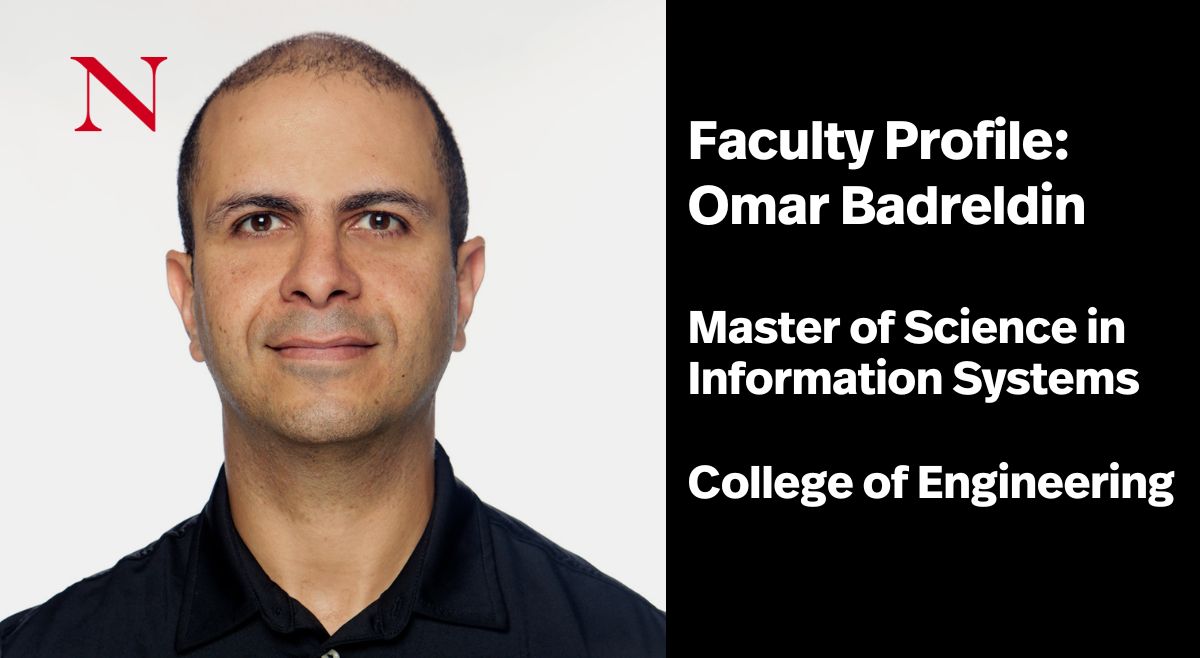Faculty Profile: Omar Badreldin

We caught up with newly appointed Associate Teaching Professor Omar Badreldin, to learn about his journey to Northeastern, his research, and his initial impressions of the program he will lead, the Master of Science in Information Systems (MSIS).
What led you to the program and Northeastern in Toronto?
I completed my PhD at the University of Ottawa in 2012. I moved to the USA the following year and from 2016 onwards I was at the University of Texas. I was inspired to join the team at Toronto after a series of conversations with the Executive Director of Multidisciplinary Graduate Engineering Programs, Khaled Bugrara. I was excited by the global nature of the programs offered by the College of Engineering, and the possibilities presented by an interconnected and global campus network. This unique program opens new pathways for students to access the knowledge of experts and industry professionals in an unprecedented way.
Could you talk to us about your research background, and what you are currently working on?
My research is about using Machine Learning and Artificial Intelligence to forecast the future evolution of software systems and using those insights to guide design decisions in the present. Think about it this way; when architects and civil engineers are designing a building, they are planning for it to be used in the same way for a hundred years. Basic requirements, like the need for bathrooms, meeting space etc., won’t change significantly over that time period. But software is very different. The needs of organizations change, perhaps in response to new competitors. Software users may also demand more features or different experiences. This makes it challenging to design software that will remain effective in the long term. In essence, this research uncovers the most likely evolutionary scenarios and extracts actionable information to enable the design of sustainable systems.
What drew you to the world of programming as a young person?
I actually don’t like the word programming! Focusing on programming and coding can lead to misconceptions about the purpose of programs like MS in Information Systems. I prefer to think of coding as a tool for problem-solving. That’s what our students really are, problem solvers. During my undergrad education, I initially wanted to change my major and move away from the practice of coding. However, my uncle, who was a University Professor, convinced me that coding is a hugely useful complementary skill that can support diverse career aspirations. And this ethos is something that is built into the MSIS Program in Toronto.
As someone who has recently moved back to the city, how do you think being in Toronto benefits your students?
Toronto offers access to a broad range of large multinational companies. Which means access to job opportunities, co-op opportunities, relationship building, networking events, conferences, and more. Companies always need talent, so in a sense the program also benefits the city and the region by providing qualified professionals who can make an immediate contribution.
What do you get up to outside of work?
I have two hobbies that I’m very passionate about. The first is tennis and the second is endurance cycling. I hope to find nice routes around Toronto in the near future.




